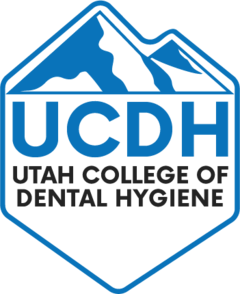SATISFACTORY ACADEMIC PROGRESS OVERVIEW To maintain eligibility for federal Title IV financial aid and other aid administered by the Utah College of Dental Hygiene (UCDH), students must meet Satisfactory Academic Progress (SAP) standards. These standards apply to all students, regardless of whether they currently receive financial aid, and are evaluated at the end of each semester. SAP is measured using both qualitative (GPA-based) and quantitative (credit completion-based) criteria: QUALITATIVE STANDARD - Students must maintain a minimum cumulative GPA of 2.0. QUANTITATIVE STANDARD (PACE) - Students must successfully complete at least 67% of all attempted credits. MAXIMUM TIMEFRAME - Students must complete their program within 150% of the published length (measured in credit hours). FINANCIAL AID STATUS CATEGORIES 1. Financial Aid Warning - Assigned after first-time SAP failure. - No appeal required. - Students remain eligible for financial aid during the warning term. - If SAP is met by the end of the warning period, students return to good standing. - If not, the student becomes ineligible for financial aid and must submit an appeal. 2. Financial Aid Probation - Assigned if a student submits an appeal after failing SAP during the warning period. - To be approved, the SAP Appeal must: - Explain extenuating circumstances (e.g., illness, death, divorce). - Detail improvements or changes to support future success. - Include supporting documentation. - Include an Academic Plan, if necessary. - If the appeal is approved: - The student is placed on Financial Aid Probation for one term. - Aid eligibility is restored for that term. - Student must either meet SAP or follow the Academic Plan to retain aid moving forward. 3. Loss of Financial Aid Eligibility - If a student fails to meet SAP or the conditions of the Academic Plan at the end of the probationary period, financial aid eligibility is terminated. - Students may also be required to withdraw from the College, per institutional policy. ADDITIONAL ACADEMIC POLICIES INCOMPLETE GRADES - Grades of “I” (Incomplete) must be resolved by the end of the following semester. REPEATING COURSES - Grades of A–C cannot be repeated for grade improvement. WITHDRAWALS - Withdrawals are not calculated in GPA but do impact the maximum timeframe. TERMINATION/SUSPENSION - Students may be dismissed for unresolved “I” grades or failure to meet academic standards. NOTIFICATIONS - SAP status notifications are sent to students via their official College email. APPEALS |
Utah College of Dental Hygiene
